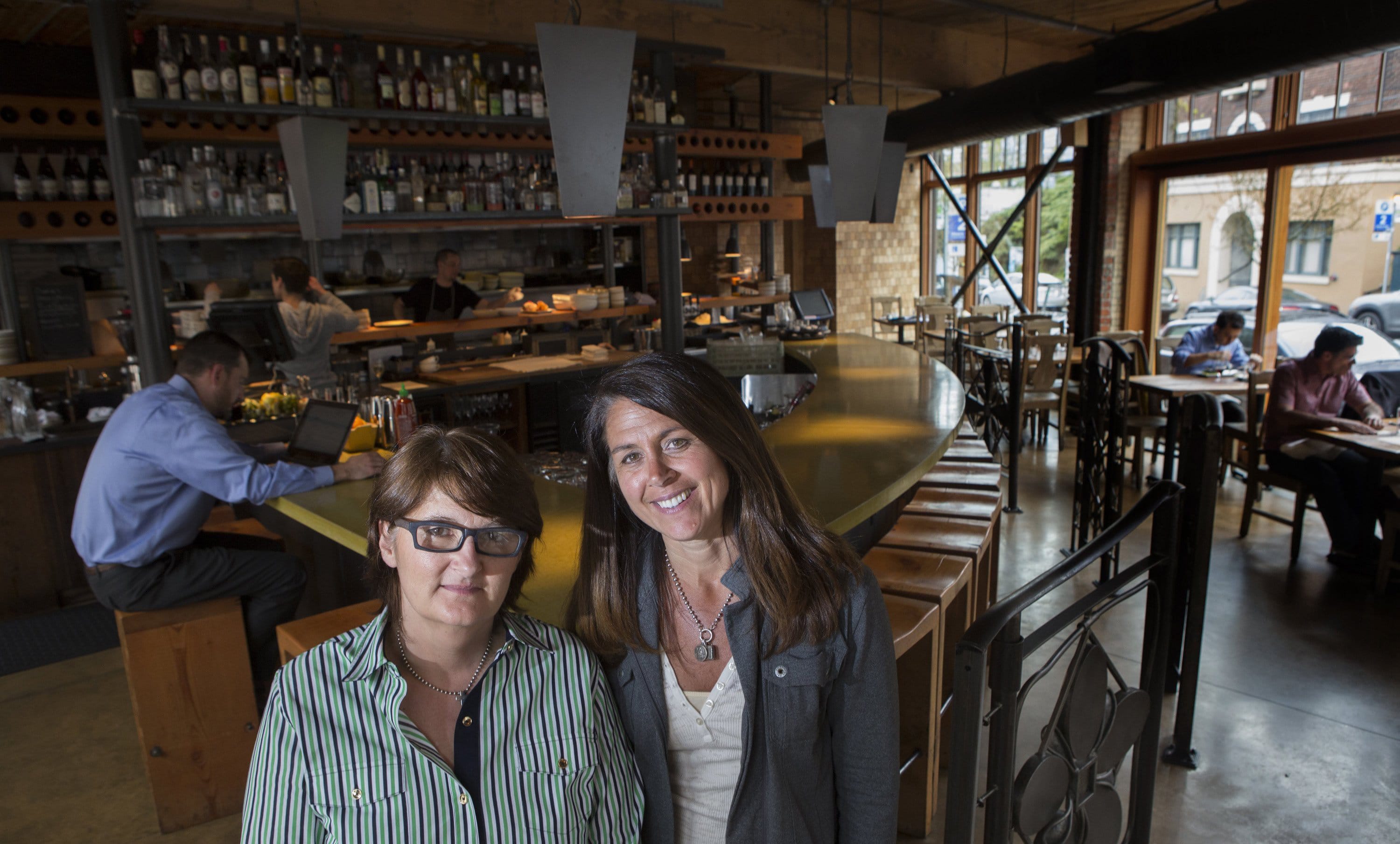SEATTLE — Bartender Bridget Maloney would see her base hourly pay rise 61 percent under a push by labor activists to create a $15 minimum wage in Seattle.
But Maloney, a 28-year-old college graduate, says she doesn’t need a pay raise.
“On weekends, I can make up to $45 an hour,” she said. “I work for my tips, not my minimum wage.”
Maloney is part of an increasingly vocal group of workers who live off tips and oppose the idea of a $15 minimum wage that makes no exception for the gratuities they receive. She says tipped workers should be paid a lower base hourly rate, as long as their tips make up the difference.
At the other end of the tip spectrum is Autumn Brown, a Starbucks barista in Seattle’s Georgetown area. She supports a $15 minimum for everyone and believes that a server’s pay should not depend on the generosity of customers.
“People don’t leave tips, or if they do, it’s usually what they get back for change,” Brown said.
The question of whether restaurants should be allowed to take a tip credit against their minimum-wage obligation has become perhaps the most divisive aspect of the $15 hourly rate debate. The city’s restaurant industry points to servers like Maloney as evidence that tipped workers are making good money, while labor activists counter that those like Brown are among the poorest workers in Seattle.
Brown, 19, shares her apartment with a roommate, takes the bus to work, and is a student at South Seattle College.
Starbucks pays her a base hourly rate of $9.38, and tips add about $1.50 to $2 an hour, she said. Because she works only part time, Brown also relies on savings and financial aid to get by.
A $15 minimum wage “would take a lot of stress off being a student and working,” she said. “I want to work more hours so that I can afford everything. On the other hand, it’s exhausting.”
Restaurants warn of the potential for business closures, layoffs and steep price increases if they’re forced to pay all of their workers, including their wait staff, a $15 minimum wage.
They say their tipped employees already earn the highest-in-the-nation statewide minimum wage of $9.32 an hour. And in a recent industry survey, they say a $5.68 hourly increase would push their labor costs as a percentage of sales to an unsustainable 48 percent, up from 36 percent now.
Restaurants also have threatened to replace the tip line on their bills with a flat-rate service charge, which could then be divided among waiters, bartenders, busers and kitchen staff to help owners meet their minimum-wage obligations.
Maloney echoes those concerns. A year of tending bar at a popular restaurant in one of Seattle’s trendiest neighborhoods has afforded her a comfortable lifestyle: With after-tax earnings in the range of $700 to $900 a week, she drives a luxury sports sedan and is preparing for a two-week vacation in Spain.
“If people are paying a service charge, or if they’re paying more for their drinks and meals, there’s a chance they might tip less,” Maloney said. “And if they know we’re making $15 an hour, they might not to want to tip us at all. That’s a scary thing.”
Puget Sound Sage, a progressive think tank that opposes counting tips toward the minimum wage, argues that most tipped workers in Seattle make less than $15 an hour, even with gratuities. They include not only waiters and bartenders, but also baristas, bellhops, hairstylists, manicurists and massage therapists.
Nicole Vallestero Keenan, research and policy analyst for Puget Sound Sage, analyzed U.S. Census data to estimate the total median hourly earnings for tipped workers in Seattle. Looking at the full tip spectrum, she said, the median is about $13.70 an hour.
“The high-end waiters and waitresses are not representative of the full breadth of tipped workers in Seattle. In fact, most tipped workers make below $15 an hour,” Keenan said.
But the Washington Restaurant Association, which opposes an immediate, across-the-board $15 minimum wage, recently surveyed its Seattle members and found that waiters and bartenders at establishments with table service make more than $28 an hour, on average, including tips.
About 210 full-service restaurants responded to the survey, according to the trade group’s president, Anthony Anton. He noted that because credit cards are used for some 90 percent of restaurant sales, tip data is more reliable now than when customers paid with cash.
“Let’s look at total compensation,” Anton said. “If someone’s making $60,000 a year, why are they part of the conversation?”
The typical sit-down restaurant in Seattle turns an annual profit of 4 percent, before taxes and debt-service payments, he said. A $15 minimum wage would make them unprofitable, he added, unless they cut costs or raise revenue.
More than two-thirds of the survey’s respondents cited price hikes and layoffs as among the five most likely business changes if a $15 wage goes through. About a quarter of respondents also mentioned a tweaking of tip policies, such as eliminating the tip line on credit-card receipts.
Then again, none of that takes into account the possibility that restaurants will benefit from workers with more money to spend after a citywide pay raise. Also, researchers at the University of California-Berkeley found that municipal minimum-wage increases elsewhere led to better morale and reduced staff turnover, saving employers money.



